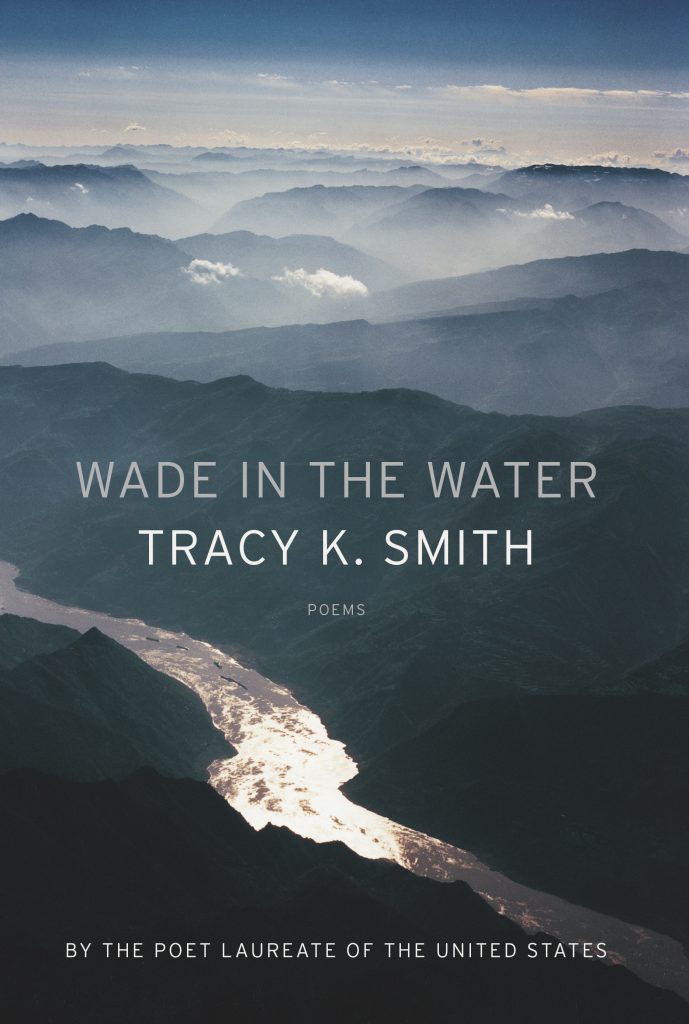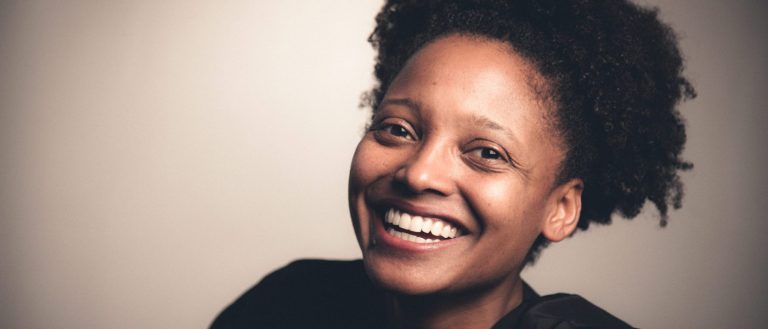Former U.S. Poet Laureate to present at university’s fall convocation
Tracy K. Smith, a Pulitzer Prize-winner and former U.S. Poet Laureate, is Case Western Reserve University’s 2021 Elaine G. Hadden Distinguished Visiting Author.
Case Western Reserve is announcing her selection in April in honor of National Poetry Month.
Smith’s book, Wade in the Water, which was recognized with a 2019 Anisfield-Wolf Book Award, will be the common reading book for incoming first-year students. The common reading selection is part of the First-Year Experience Program, which is committed to helping new students successfully begin their transition from high school to Case Western Reserve.
The university plans to host Smith—also the Roger S. Berlind ’52 Professor in the Humanities at Princeton University and chair of Princeton’s Lewis Center for the Arts—Wednesday, Aug. 25, for its annual fall convocation. Details for the event will be shared later this summer at case.edu/events/featured-events/fall-convocation.
“Smith is a brilliant poet and a gifted teacher, as Wade in the Water attests,” said Tim Beal, the Florence Harkness Professor of Religion and chair of the Department of Religious Studies, who chaired the Common Reading Selection Committee. “At once lyrical, critical, and deeply thoughtful, her poems will open spaces for us to explore some of today’s most urgent questions.”

Smith received the 2012 Pulitzer Prize in poetry for her third book of poems, Life on Mars, “a collection that draws on the genre of science fiction in considering who we humans are and what the vast universe holds for us,” according to her official bio. Life on Mars was a New York Times Notable Book, a New York Times Book Review Editors’ Choice and a New Yorker, Library Journal and Publishers Weekly Best Book of the Year.
“You want a poem to unsettle something,” Smith told the New York Times Magazine in a 2018 profile. “There’s a deep and interesting kind of troubling that poems do, which is to say: ‘This is what you think you’re certain of, and I’m going to show you how that’s not enough. There’s something more that might be even more rewarding if you’re willing to let go of what you already know.’”
Smith’s debut collection, The Body’s Question, was selected by Kevin Young as winner of the Cave Canem Prize for the best first book by an African American poet. Duende, Smith’s second book, received the James Laughlin Award from the Academy of American Poets. In her memoir, Ordinary Light, Smith explores her own experience of race, religion and the death of her mother shortly after Smith graduated from Harvard. The book was a finalist for the National Book Award, and named a Notable Book by both The New York Times and The Washington Post.
Smith’s fourth book of poems, Wade in the Water, won the Anisfield-Wolf Book Award for its examination of the grave contradictions tied up in America’s history. In documenting “found” and “erasure” poems, Smith unravels the knot of racism and denial as the central conundrum of America, and she forges a vocabulary of compassion as a possible route forward through our current strife.
“In Wade, Smith invites her readers to see America, and the world around them, via the eyes of a generous and attentive observer, whether weeping ‘through a movie starring Angelina Jolie’ in one poem, or watching a mentally ill man stopping traffic ‘as if he hears / a voice in our idling engines’ in another,” according to a review in The Atlantic. “Her poems are accessible in that they’re placed within contemporary and familiar contexts. Some of the best moments in Life on Mars feature David Bowie as the subject and object of Smith’s admiration.”
Smith served two terms as Poet Laureate of the United States, during which time she traveled the country, hosting poetry readings and conversations in rural communities. She edited the anthology American Journal: Fifty Poems for Our Time during her laureateship and launched the American Public Media podcast The Slowdown. In March 2021, she was voted into the American Academy of Arts and Letters.
For more information, contact Bill Lubinger at william.lubinger@case.edu.

